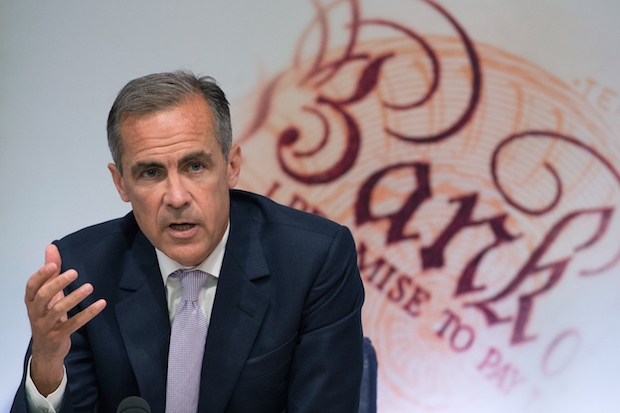If only all my stories had as much impact.
My interview with Mark Carney, the Governor of the Bank of England, sent shockwaves around the world’s currency markets.
The Canadian was just three months into his new role as Britain’s most powerful unelected official when he visited Leeds to explain the central bank’s then new policy of forward guidance to a group of business leaders at the offices of one of the city’s Big Six law firms.
In person, Carney was smooth, confident and assured, just as you would expect from someone who spent his formative years at Goldman Sachs.
I had 10 minutes with the Governor, who was accompanied by his imported Canadian spokesman. Forward guidance, he said, was all about giving households and businesses advance notice of a rise in interest rates. This would come onto the agenda when average UK unemployment fell to 7 per cent.
The policy was doomed from the start. Britain’s twin-speed economy, an even bigger issue now than it was then in September 2013, meant that the trigger could be squeezed by strong growth in the hot spot of London and the South East while the North of England was still languishing in the doldrums. Any rise in the cost of borrowing would surely be catastrophic for families and small businesses trying to make ends meet.
Anyway, Carney had just finished a lengthy defence of his position, explaining how such an unravelling possibly couldn’t be the case, when I followed up with this: ‘So when are interest rates going to rise?’
Carney and his minder looked at me incredulously, wondering if I could be as stupid as my question. I smiled knowingly and so did they, relieved that I was probably kidding.
‘Any more QE?’ I asked, referring to the Bank of England’s controversial asset-buying programme in which the Old Lady of Threadneedle Street pumped £375 billion (and counting) into Britain’s faltering economy.
Carney, possibly off-guard after the previous exchange, said he didn’t see a case for it, given the strengthening and broadening of the recovery.
Pow. The moment the story was published at 6am the following morning the pound shot up against the dollar as money markets reacted with shock at Carney’s comment. No more money printing meant that sterling would retain its value so it was ‘buy, buy, buy’ as fast as you can.
Unfortunately for those on the other side of the trade it meant sharp losses. Indeed, one currency speculator emailed me to complain that some of his counterparts had been badly burnt by Carney’s comments. ‘Carney Carnage’ read the subject line in his email.
It was a little unnerving but undeniably exciting to be at the centre of such a storm. A story in a regional newspaper, albeit one as prestigious as The Yorkshire Post, sending the world’s markets into a spin. It was journalistic Viagra.
As it happened, the markets returned to a less excitable state later in the day as traders digested the fact that Carney was perhaps not as cautious as his predecessor Mervyn (now Lord) King when it came to public pronouncements. This was one of his very first interviews after all.
I had interviewed King back in October 2008, near the height of financial crisis. It was a crystal clear day in Leeds and we had an hour in a meeting room at the top of 42 The Calls, one of the city’s nicer hotels, with his press officer Jenny Scott.
King Merv was much more circumspect in his responses. You could almost hear his large academic brain computing his answers in a chess-like way before their careful, considered, dry delivery. Nothing ruffled his composure, even my ridiculous enquiry if the meltdown had affected his sex life.
Bernard Ginns is the founding director of www.branksomepartners.com. He was Business Editor of The Yorkshire Post from 2008-16.






Comments